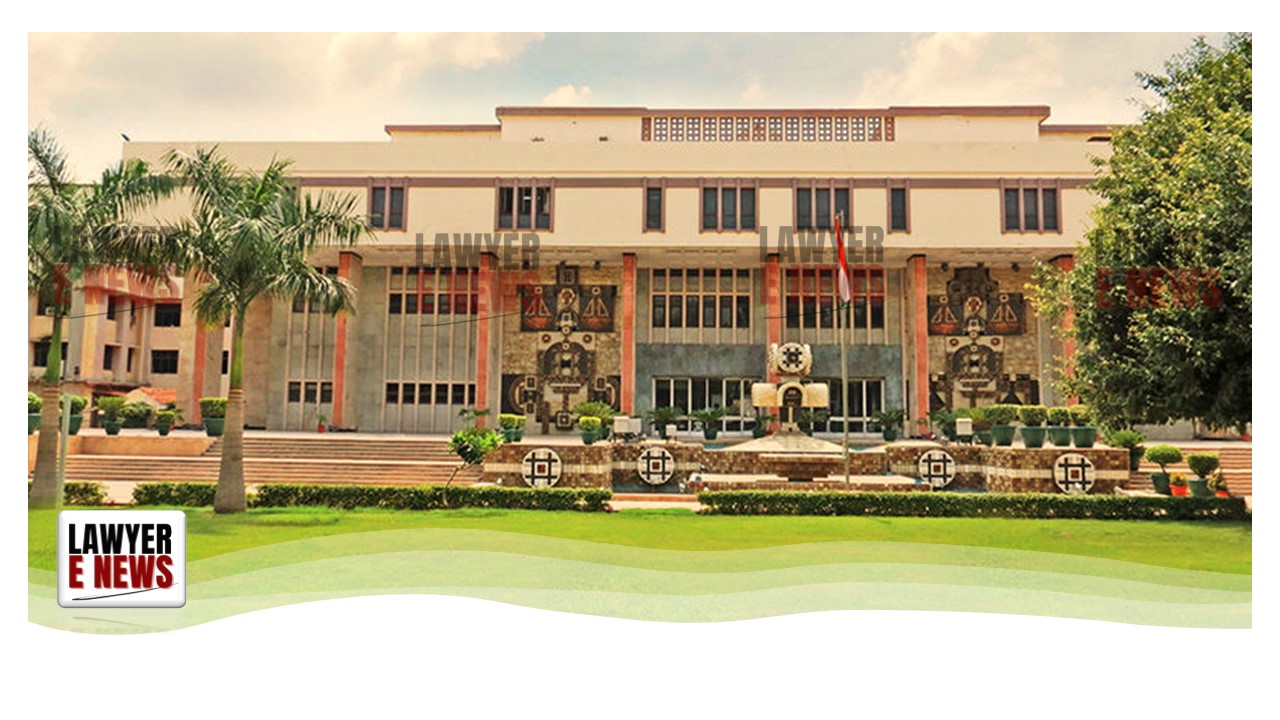-
by Admin
16 February 2026 1:47 PM



In a significant ruling on fraud as a ground for setting aside judgments, the Delhi High Court held that a party cannot challenge a decree merely by alleging fraud without specific pleadings or evidence. The Court set aside the Additional District Judge (ADJ), Dwarka’s order, which had rejected an application under Order VII Rule 11 of the Code of Civil Procedure (CPC), 1908, filed by the Petitioner, Gautam Saluja, seeking rejection of a suit that sought to declare an ex-parte judgment as null and void.
The High Court emphasized that allegations of fraud must be pleaded with precision and substantiated with cogent evidence. It further held that fraud cannot be an afterthought raised belatedly to circumvent finality of judgments, especially when the party had multiple opportunities to contest the case but failed to do so.
"The plaint is bereft of any details regarding how the judgment was obtained by fraud. A party who was duly served, participated in proceedings, and later chose to remain absent cannot subsequently claim that the decree was fraudulent," observed Justice Neena Bansal Krishna.
The dispute arose from a series of Agreements to Sell executed between the Petitioner (Gautam Saluja) and the Respondents (Jitender Kumar Sethi & Anr.) regarding a property in Uttam Nagar, New Delhi. The Petitioner had paid substantial sums towards the sale, but the Respondents failed to execute the Sale Deed, leading to a legal battle that culminated in an ex-parte money decree in the Petitioner’s favor.
The Respondents, despite being duly served with summons in 2012, failed to file a Written Statement in the original Suit for Specific Performance (CS No. 2751/2012) and were proceeded ex-parte. The Petitioner led ex-parte evidence, and the suit was decreed in his favor on 15.11.2017, awarding him a sum of Rs. 12,70,100/- with interest.
After their attempts to set aside the decree under Order IX Rule 13 CPC and a subsequent First Appeal (FAO) were dismissed, the Respondents filed a fresh suit (CS No. 482/2019) in 2019, alleging that the decree was obtained by fraud and sought to have it declared null and void.
The Petitioner, in response, filed an application under Order VII Rule 11 CPC, arguing that the suit was barred by limitation and failed to disclose a cause of action. However, the ADJ, Dwarka dismissed the application, prompting the Petitioner to approach the High Court in revision.
"Fraud Must Be Proven, Not Merely Alleged": High Court Rejects Suit as Barred by Limitation
The Delhi High Court, after examining the facts and legal submissions, set aside the ADJ’s order and allowed the application under Order VII Rule 11 CPC, rejecting the Respondents’ suit.
"Fraud is a serious allegation and must be specifically pleaded and proved with evidence. A vague claim that an ex-parte decree was obtained by fraud, without specific allegations regarding how fraud was committed, is insufficient to sustain a suit," the Court ruled.
The Court further noted that the Respondents had multiple opportunities to contest the original suit but failed to do so. Having been duly served, they not only failed to file a Written Statement but also did not challenge the Agreements to Sell at the relevant time.
"Res Judicata Bars Collateral Attacks on Final Judgments"
The High Court emphasized that a concluded judgment cannot be reopened merely because a party remained absent during the trial.
"A party who was aware of the proceedings, failed to contest the suit, and later had its application under Order IX Rule 13 CPC dismissed, cannot seek to bypass these findings by filing a fresh suit on the ground of fraud," the Court observed.
The Court relied on the Supreme Court’s ruling in Indian Bank v. Satyam Fiber (India) Pvt. Ltd., (1996) 5 SCC 550, which held that fraud vitiates all proceedings but must be established with concrete evidence.
Limitation: "Fraud Cannot Be Used to Extend Time Indefinitely"
The Respondents contended that they became aware of the fraud only after obtaining a Forensic Science Laboratory (FSL) Report in 2018, which allegedly showed that the signatures on the Agreements to Sell were forged.
The High Court rejected this argument, holding that the cause of action to challenge the Agreements to Sell arose in 2012, when the documents were first produced in court.
"The limitation period for challenging a document starts when the party first learns of the alleged fraud. The Respondents were aware of these documents in 2012 but took no action. The FSL Report, being an expert opinion, cannot override statutory limitation periods," the Court ruled.
Citing S. Gopal Reddy v. State of A.P., (1996) 4 SCC 596, the Court reiterated that expert opinions are merely advisory and cannot substitute substantive evidence.
The High Court allowed the revision petition, set aside the ADJ’s order dated 08.01.2021, and dismissed the Respondents’ suit (CS No. 482/2019) as barred by limitation and failing to disclose a cause of action.
"The suit was a collateral attack on a final judgment and an abuse of the process of law. Fraud cannot be used as a belated pretext to reopen a concluded judgment," the Court concluded.
With this judgment, the Delhi High Court has reinforced the principle that finality of judgments must be respected, and mere allegations of fraud without substantive proof cannot be a tool to evade judicial discipline.
Date of Decision: 17 February 2025
